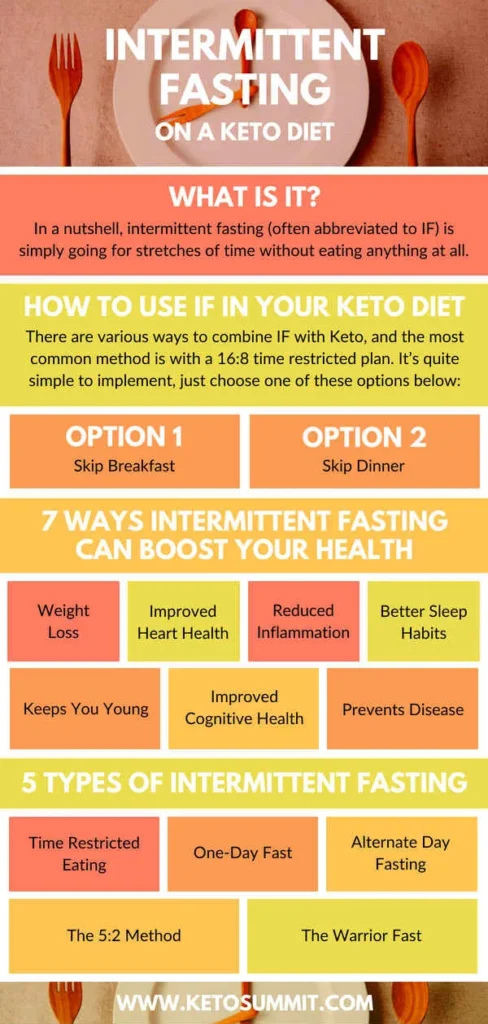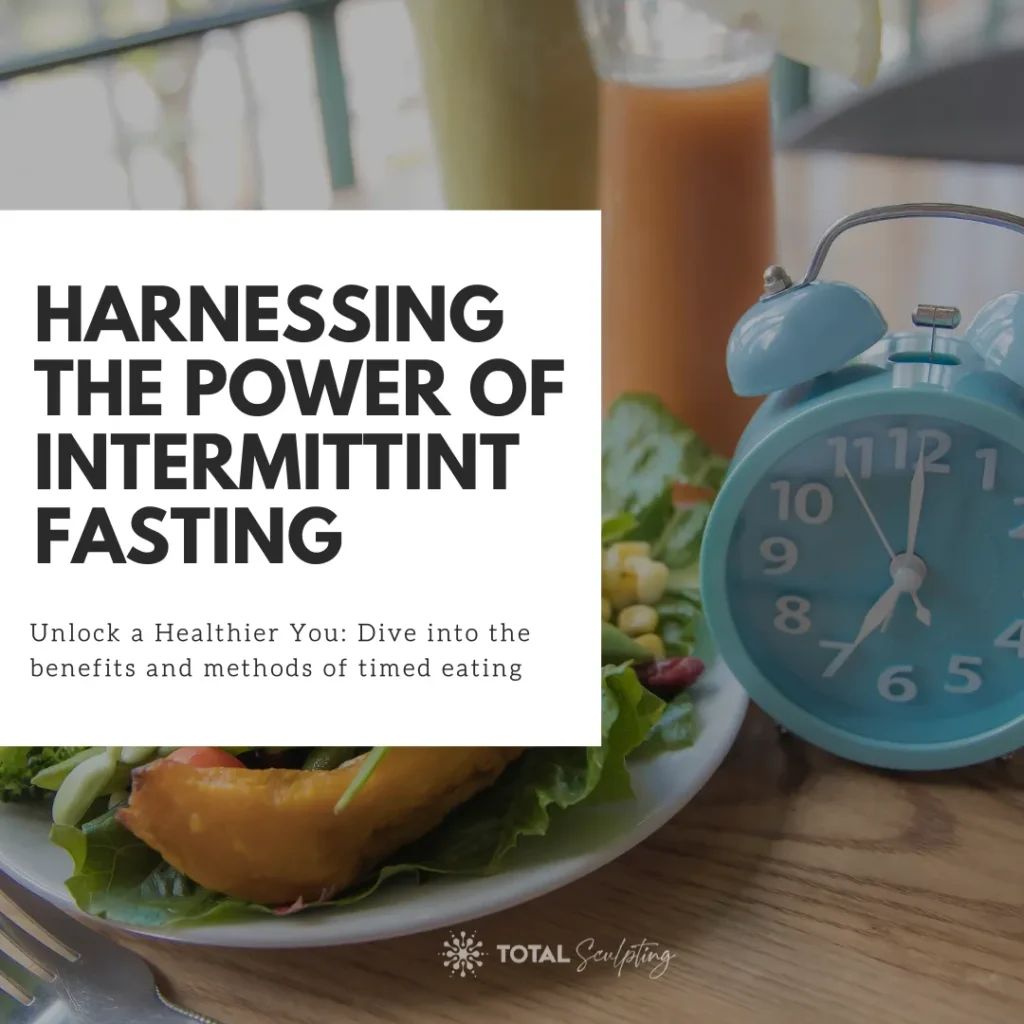Intermittent Fasting vs. Keto: Which Diet is Best for You?
In recent years, there has been a surge in popularity of various diets and eating patterns that claim to help with weight loss, improved health, and increased energy levels. Two of the most popular diets that have gained widespread attention are intermittent fasting and the ketogenic diet (keto). Both diets have their own unique benefits and drawbacks, so it can be difficult to determine which one is best for you. In this article, we will explore the differences between intermittent fasting and keto, as well as the potential benefits and risks of each diet. We will also provide some tips on how to choose the diet that is right for you.
Intermittent Fasting
Intermittent fasting is an eating pattern that involves cycling between periods of eating and fasting. There are several different methods of intermittent fasting, but the most common ones include:
– 16/8 method: This involves fasting for 16 hours each day and eating all your meals within an 8-hour window.
– 5:2 diet: This involves eating normally for five days of the week and restricting calories to 500-600 on the other two days.
– Eat-Stop-Eat: This involves fasting for 24 hours once or twice a week.
– Alternate-day fasting: This involves fasting every other day.
Intermittent fasting is believed to help with weight loss, improve metabolic health, and increase longevity. Some studies have shown that intermittent fasting can help reduce inflammation, improve blood sugar levels, and lower the risk of chronic diseases such as heart disease and diabetes.
The ketogenic diet, or keto for short, is a high-fat, low-carbohydrate diet that is designed to put the body into a state of ketosis, where it burns fat for fuel instead of carbohydrates. The keto diet typically consists of 70-80% fat, 20-25% protein, and 5-10% carbohydrates.
The main goal of the keto diet is to force the body to use fat as its primary source of energy, which can lead to rapid weight loss and improved metabolic health. Some studies have shown that the keto diet can help reduce inflammation, lower blood sugar levels, and improve cognitive function.
Intermittent Fasting vs. Keto: Which Diet is Best for You?
When it comes to choosing between intermittent fasting and the keto diet, there are several factors to consider. Here are some key differences between the two diets:
1. weight loss: Both intermittent fasting and the keto diet have been shown to be effective for weight loss. However, intermittent fasting may be easier to stick to for some people, as it does not require strict calorie counting or macronutrient tracking. On the other hand, the keto diet can be more restrictive and may require more planning and preparation.
2. Metabolic health: Both diets have been shown to improve metabolic health markers such as blood sugar levels, cholesterol levels, and blood pressure. However, the keto diet may be more effective at reducing insulin resistance and improving insulin sensitivity, which can help with weight loss and overall health.
3. Longevity: Some studies have suggested that intermittent fasting may have anti-aging effects and increase longevity. However, more research is needed to determine the long-term effects of both diets on lifespan and overall health.
4. Sustainability: When choosing a diet, it is important to consider whether you can stick to it in the long term. Intermittent fasting may be easier to incorporate into your lifestyle, as it does not require strict dietary restrictions. On the other hand, the keto diet may be more challenging to maintain, especially if you are used to eating a high-carbohydrate diet.
5. Individual differences: It is important to remember that everyone is different, and what works for one person may not work for another. Some people may thrive on the keto diet, while others may find intermittent fasting to be more sustainable. It is important to experiment with different diets and eating patterns to see what works best for you.
Potential Benefits and Risks of Intermittent Fasting and Keto
Intermittent fasting and the keto diet both have their own unique benefits and risks. Here are some potential benefits and risks of each diet:
Intermittent Fasting:
Benefits:
– Improved metabolic health
– Reduced inflammation
– Increased longevity
Risks:
– Hunger and cravings
– Nutrient deficiencies
– Disordered eating patterns
Benefits:
– Rapid weight loss
– Improved metabolic health
– Reduced inflammation
– Increased energy levels
Risks:
– Nutrient deficiencies
– Keto flu (symptoms of withdrawal from carbohydrates)
– Difficulty sticking to the diet long term
How to Choose the Diet That is Right for You
When it comes to choosing between intermittent fasting and the keto diet, it is important to consider your individual goals, preferences, and lifestyle. Here are some tips on how to choose the diet that is right for you:
1. Consider your goals: Are you looking to lose weight, improve your metabolic health, or increase your energy levels? Consider which diet aligns best with your goals and objectives.
2. Think about your lifestyle: Do you have a busy schedule that makes it difficult to stick to a strict eating pattern? Consider whether intermittent fasting or the keto diet would be more sustainable for your lifestyle.
3. Experiment with different diets: It may take some trial and error to find the diet that works best for you. Consider experimenting with both intermittent fasting and the keto diet to see which one you prefer.
4. Consult with a healthcare professional: Before making any drastic changes to your diet, it is important to consult with a healthcare professional or registered dietitian. They can help you determine which diet is best for your individual needs and goals.
Frequently Asked Questions
Q: Can I combine intermittent fasting and the keto diet?
A: Yes, it is possible to combine intermittent fasting and the keto diet. Some people find that fasting can help them reach a state of ketosis more quickly and enhance the benefits of the keto diet.
Q: Will intermittent fasting slow down my metabolism?
A: Some studies have suggested that intermittent fasting can actually increase metabolism and help with weight loss. However, more research is needed to determine the long-term effects of fasting on metabolism.
Q: Is the keto diet safe for everyone?
A: The keto diet may not be suitable for everyone, especially those with certain medical conditions such as diabetes or kidney disease. It is important to consult with a healthcare professional before starting the keto diet.
Q: Will I feel hungry on intermittent fasting?
A: It is normal to experience hunger and cravings when starting intermittent fasting, especially during the fasting periods. However, these feelings may decrease over time as your body adjusts to the new eating pattern.
Q: Can I exercise while on the keto diet?
A: Yes, it is possible to exercise while on the keto diet. Some people find that exercising while in a state of ketosis can enhance fat burning and improve performance.
Conclusion
Intermittent fasting and the keto diet are two popular eating patterns that have gained widespread attention for their potential benefits on weight loss, metabolic health, and longevity. Both diets have their own unique advantages and drawbacks, so it is important to consider your individual goals, preferences, and lifestyle when choosing between the two. Whether you decide to try intermittent fasting, the keto diet, or a combination of both, it is important to consult with a healthcare professional to ensure that you are meeting your nutritional needs and staying healthy. Remember, the best diet is the one that works best for you and helps you achieve your health and wellness goals.

